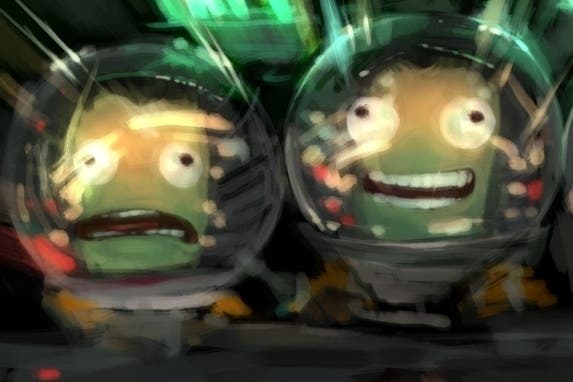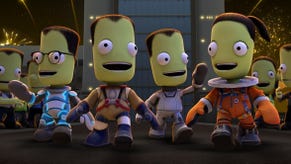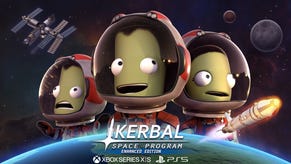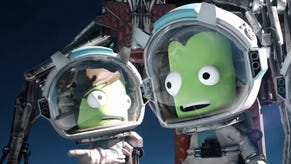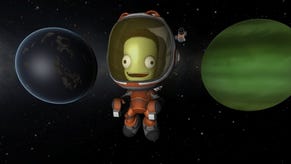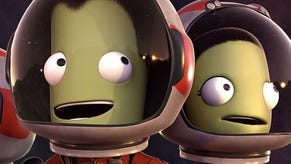Kerbal Space Program Early Access review
Giant leaps.
Kerbal Space Program is a physics game. That's a term that has been roundly abused and misrepresented, however. Does a mug on a desk fly off when you shoot it? Physics! Does your character fall down stairs like a ragdoll? Physics! Can you twang circular birds at pigs hiding in rickety wooden structures? Yay! Physics! As far as games are concerned, "physics" is now basically shorthand for "stuff that moves kind of realistically".
So let's start over. Kerbal Space Program is a physics game, in the textbook sense of the word. An actual literal textbook, full of real science. This is a game in which you'll need to understand not only an object's centre of gravity, but its centre of thrust. It's a game where you need to know what periapsis and apoapsis mean, and where you'll need to understand orbital eccentricity and inclination.
It's also a game about gormless, wide-eyed cartoon characters who want to be astronauts.
This contrast between goofy cartoon and hardcore science is what gives Kerbal Space Program its distinctive flavour; a game that demands serious thought but is never less than hilariously charming. Though the means by which you achieve it are challenging, the ultimate goal is very simple. You need to help the Kerbals, inhabitants of the planet Kerbin, to reach outer space and land on the Mün and the planets beyond.
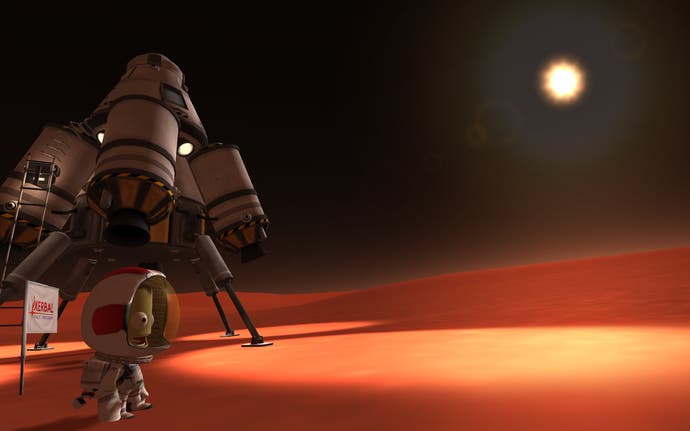
At its most basic, the game is a construction sandbox in which you put together various rocket pieces before testing them on the launchpad, with a hapless Kerbal strapped inside. Adorable as they are - a sort of cross between the Rabbids and Despicable Me's Minions - it's best not to get too attached. Let's just say this is a job with a high staff turnover.
Even with a high body count, it's fun to muck about with the different bits and pieces, putting together fuel tanks, boosters, command capsules, fins, wings and all sorts of sticky-out bits, before watching the whole caboodle spiral to a graceful yet fiery end. Slowly but surely, you start to work out what's needed to not only get the thing pointing the right way, but also burn long enough and fast enough to escape Kerbin's gravitational pull. And that's when the game gets really interesting.
There are three gameplay phases, in essence. The tinkering design stage, the launch and flight phase where you'll need to master roll, pitch and yaw to keep your rocket stable, and then the not insignificant question of navigating space itself. That's when you need to know how to use the periapsis and apoapsis of your orbit to change course, but thankfully the game comes with friendly, no-nonsense tutorials that somehow make the theory perfectly accessible. Putting that theory into practice is no mean feat, but at least you'll have a broad grasp on the Newtonian forces you're playing with.
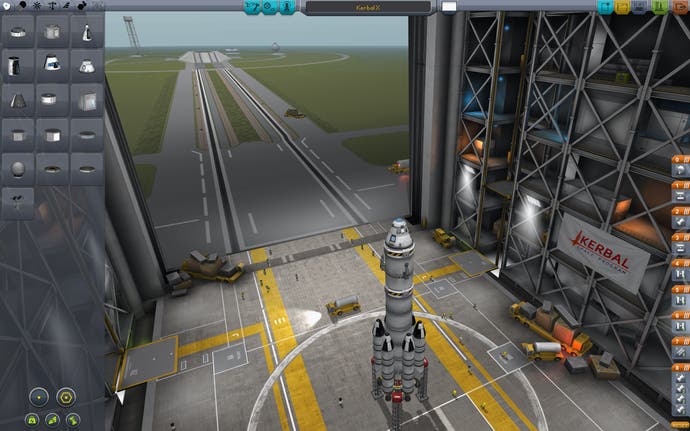
And it's only once you're in space that you appreciate just how detailed the game really is. That cartoonish exterior is deceptive. The controls are thankfully kept to a minimum, but every button tap matters. If you've seen Gravity you'll know how even small changes can result in massive errors, and Kerbal Space Program doesn't shy away from that. Finding the right trajectory, calculating the correct amount of fuel burn, these are the exact same skills that kept the Apollo astronauts alive. It's no wonder that NASA itself just announced that it's collaborating with the developer on a mission pack for the game. That's how true to life it is.
The game won't dazzle you with its looks, with a graphical style that is functional rather than pretty, but those cute Kerbals inject enough personality to compensate. In a particularly delightful (and ever so slightly ghoulish) touch, you get a little windowed view of your would-be astronauts as they hurtle into the void. Even if they come crashing back down or wind up floating forever in the inky blackness, their wide-eyed faces and daft grins never falter. You'll laugh, and feel like a monster for doing so.
Kerbal Space Program has been in development since 2011, and has constantly evolved from that moment on. Indeed, Squad, the studio behind the game, informs us that "we don't consider KSP to be in Alpha nor Beta. Each update has its own alpha and beta as we originally had no idea when we'd stop development and lead developer Felipe Falanghe wanted to make sure each update could stand on its own as a final version of KSP."
Kerbal Space Program lacks the immediate pick-up-and-play appeal of Minecraft, but it's one of the few games since Mojang's masterpiece to offer that same combination of boundless possibility and dizzying depth
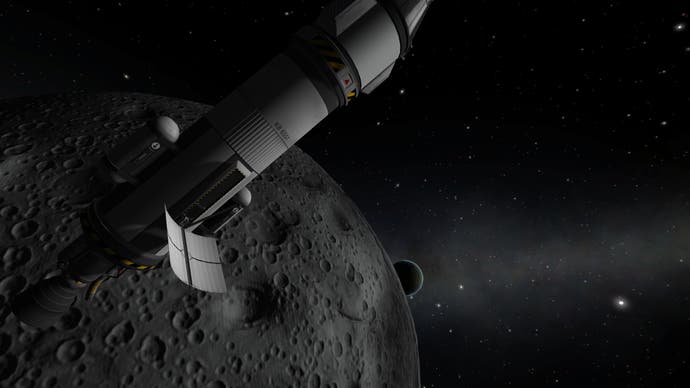
In its most recent updates, that has meant the addition of a long-awaited Career Mode, which adds a more recognisably game-shaped challenge to the game. Whereas in the Sandbox Mode every rocket part is available to play around with, when playing a Career game you must research and earn every new gadget or mechanism. It makes an already daunting game even more demanding, but the payoffs are worth it. Experiments can be carried out in space, while permanent bases can be built and maintained on other worlds, all pouring Science currency back to your headquarters from where you can plot your next foray into the cosmos.
It's a real onion of a game, where each successful step forward is hard-earned but reveals a whole new layer of gameplay underneath. The developer's desire to ensure that each new update stand on its own means that at every stage, it feels like a complete and satisfying experience. It's a truly hardcore simulation, but one that is endearingly approachable and eager to get you grappling with the nuts and bolts of space flight.
Kerbal Space Program lacks the immediate pick-up-and-play appeal of Minecraft, but it's one of the few games since Mojang's masterpiece to offer that same combination of boundless possibility and dizzying depth. All this, and it's only on update v0.23. The thought of where it might be when it reaches the lofty peak of v1.0 is staggering.
It is, already, the sort of game you could play for 100 hours without exhausting its potential and yet, even when you're pootling around with doomed-to-fail contraptions, taking the most basic introductory steps, it's never less than charming, engrossing and entertaining. That you can go from such humble beginnings to explore an entire realistically crafted solar system is nothing short of remarkable. Strap yourself in. It's going to be a long and wonderful ride.
Eurogamer's alpha and beta reviews are reviews of games that are still in development but are already being offered for sale or funded by micro-transactions. They offer a preliminary verdict but have no score attached. For more information, read our editor's blog.
